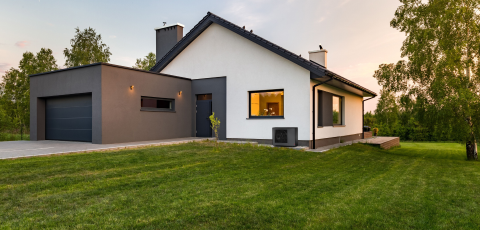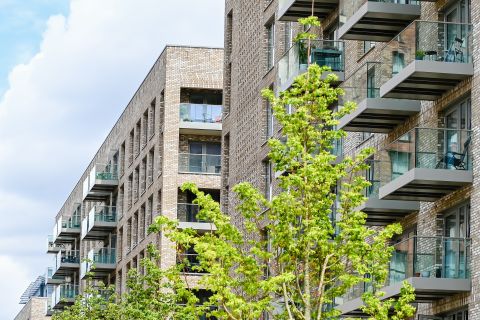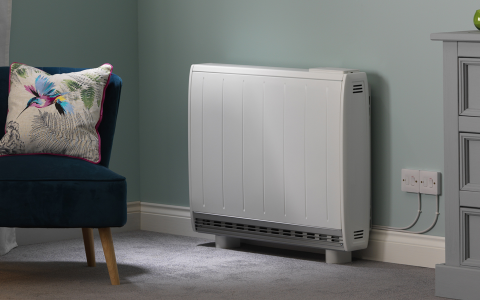

Dimplex News
Stay Updated with Dimplex: Innovations, Insights, and Industry News
Welcome to the Dimplex news hub, your go-to source for the latest updates, innovations, and insights from the world of energy-efficient heating systems and hot water solutions. Whether you're looking for the latest product launches, industry trends, or tips for improving energy efficiency with your central heating system, we keep you informed on how Dimplex is helping drive sustainability and comfort across homes, businesses, and commercial spaces.

London Tall buildings survey 2021
The London Tall Buildings Survey 2021: Emerging ambient networks

What is EN 14825?
EN 14825 sets out the temperatures, part-load conditions, and calculation methods for determining the Seasonal Coefficient of Performance (SCOP) and Seasonal Energy Efficiency Ratio (SEER). It applies to the operation of air-conditioning units, process chillers, and particular types of hybrid heat pumps. The values used to define the SCOP can be calculated or measured. If measured values are applied, the standard covers the applicable test methods.
Should the government discourage mechanical cooling?
Should the government discourage mechanical cooling?
The UK government’s proposal to introduce an overheating in new dwellings regulation aims to address the impact of rising summertime temperatures and increased risk of heat waves on buildings, especially within our overheating cities.

Reversible heat pumps to provide comfort cooling
The recent government consultation into a new overheating regulation has shown the importance of designing safe and comfortable spaces, especially in our overheating cities. With summertime temperatures set to increase, what role could heat pumps play in offering a solution?

Why should we be installing electric heating into our homes?
The way we heat our homes is changing as existing systems need to move away from gas-based heating towards electrification. The UK government is championing retrofitting with heat pumps, but what benefit could direct electric products offer in an electrified future?

Net zero pathway: direct acting solutions for existing homes
Why are direct electric solutions a viable net zero pathway to decarbonising the existing housing stock?

National Clean Air Day: Don't let your allergies get the best of you
National Clean Air day aims to draw attention to the ongoing concerns around air pollution and its impacts on our environment and our health.

What is diversity in HVAC systems?
What is diversity in HVAC systems, and how does it affect HVAC system design and specification for residential developments?
Diversity in HVAC systems within medium to large scale developments acknowledges that it is unlikely the maximum demand of all individual users of the system will arise concurrently. The total heat demand in a building is likely to be lower than the maximum or peak demand at various points in the heat network.

Only installed ambient network HVAC solution
The Zeroth Energy System – An ambient network HVAC solution already tested, installed and benefitting developments today

Hybrid heat pump electric panel heating new developments
Highly efficient hybrid electric solutions combine hot water heat pumps and direct electric panel heating to reduce the carbon footprint of new build residential developments

Heat pump COP & EER and central plant SCOP in ambient loops
What is the COP and EER of an in-apartment heat pump? Is the SCOP of the central plant a better indicator of energy performance for an ambient loop?

Can the Zeroth Energy System reduce the carbon footprint of HVAC services?
How can the Zeroth Energy System reduce the carbon footprint of heating, ventilation, and air-conditioning (HVAC) services in residential apartments and mixed-use developments?











